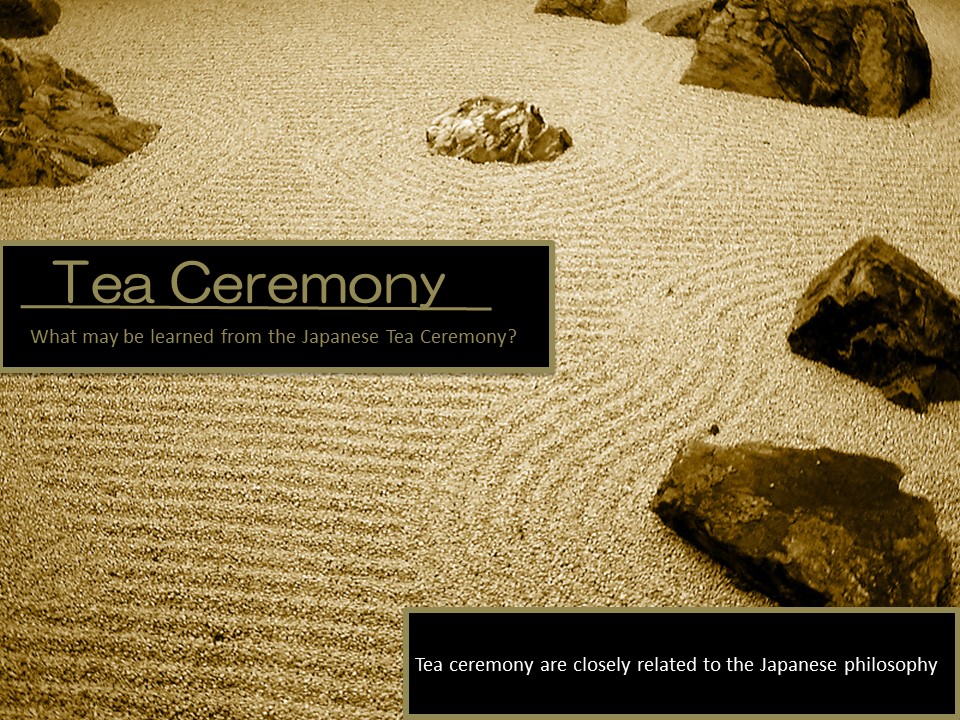It seems very formal and unrelated from the daily life. However, the things taught in the ceremony are closely related to the Japanese philosophy.

挨拶をする(Greetings)
First of all, it is very important to greet the others. A Tea Ceremony starts and ends with greeting. By properly greeting, for example look in to ones eyes and greet, one may draw the line between the daily life and the ceremony.
目上の方を立てる(Honor the Superiors)
Next, one should honor the elderlies and the experience ones. It will not only make the ceremony progress smoothly, but by respecting them, one may learn many crucial lessons about the ceremony, the philosophy, and life lessons.
物を大切に扱う(Take Good Care of the Tools)
Also, it is important to pay respect to the ceremonial tools. In Japan, objects are treated as living being. Thus, one should take good care of the tools.
銘をつける(Name the Tools)
Sometimes, important tools names, just like human or living beings. The name usually comes from the place where it was made, shape, or seasons. And by naming the tools, one may grow fond of the tool, and it may initiate a conversation about the origin and history of the tools.
季節を感じる(Experience the Seasons)
Japanese Tea Ceremony consider ‘season’ and ‘nature’ as important elements. Thus, tools, flowers, objects, and etc. reflect the current season, so that one may experience and appreciate the season.
心が落ち着く(Relax)
Often, many people who participated the tea ceremony feel relaxed and soothing. This is because of the nature of the tea ceremony incorporates the Zen philosophy. It is also important to be relaxed so that one would not make mistakes from being overly nervous.
日本文化を習得する(Learn Japanese Culture)
Recently, some Japanese cultures are being forgotten. The numbers of young generations those cannot use chopsticks properly, or have never worn a Kimono are increasing. However, through the tea ceremony, one may learn the Japanese culture, and preserve the culture.
相手を尊重する気持ち(Respect the Others)
It is also important to pay respect not only to the superiors, but to the other guests as Sen no Rikyu, on of the most influential person in Japanese Tea Ceremony, said. One should say “I will partake” to the guest before you, “Excuse me for going before you” to the guest after you, and “Thank you for making the tea” when receiving the tea from the host. By learning how to pay respect to the others, one may behave respectfully even in ones daily life.
指先までに気を配る(Pay attention to each process)
One will be advised to pay attention to every step and movement of the Tea Ceremony. By doing that, one will look respectful and tidy.
姿勢を正しく(With Good Posture)
As same as paying attention to each motions, maintaining a good posture is also important. Especially, the host should take extra care since he or she is the center of attention of the tea ceremony. However, it is hard to maintain a good posture if one does not in ones daily life. Thus, it is important to practice from daily basis